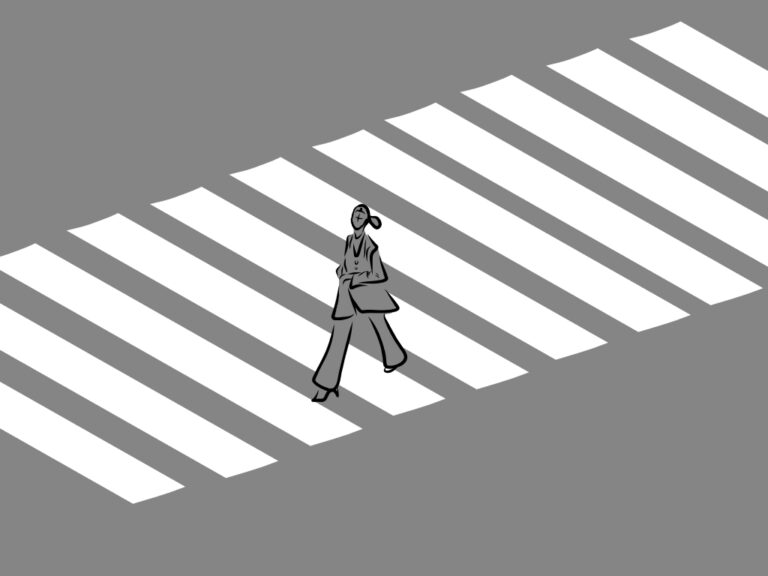Reasoning in the era of dogmatic ideologies

From 2019, a plethora of movements were started to ensure a safe space but also unleashed a backlash for various reasons. The struggle is still on. People are leading movements not only in a political space but also in educational spaces, clarifying this just to make this writing bereft of any particular ideology. That’s important because people get hurt if they find anything against their ideology, however, they forget that nothing is perfect in this world, so how an ideology could be. There is nothing wrong to have an ideology but there is also nothing wrong to accept the flaws of your beloved ideology. Also, you do not always need to stick to any single ideology because an ideology is not something you were born with, rather you adopt, change or re-adopt it over a period of time with the changing surroundings. However, it’s just a matter of choice. On a personal level, I don’t like to be affiliated with any ideology because I feel leaning towards a particular ideology diminishes our rationality and restricts our ability to comprehend and understand a story from different angles.
There are people of every kind – some who support the movements, some who don’t support them, some who support the cause of it but not the method, etc. For having different stances, they have different reasons and that is totally acceptable because democracy upholds dissent; but they need to put forward their dissent, rather than hiding it from others silently, to make the place more constructive. However, there are some dangerous elements in society. These dangerous elements are not those who support or reject the movements, rather they are those who support or reject them without having reasons. My emphasis is on the rationale.
It is fine to take a particular stand, but it’s necessary to at least take a stand and have reasons to justify that stand. Why it is necessary to have a stand with reason is that in this world you cannot stay un-opinionated. Having reasons to support your stand, shows that your brain is working, otherwise anyone can manipulate you and that is what harms society. Every day, we are developing not only to have materialistic development in terms of GDP and other Indexes but also to have social development ensuring a decent space for everyone to live and express themselves. If you fail to express your stand with a reason, you are nothing but part of a herd; if you fail to have opinions, you will be failing to develop a rational mind and this is nothing but a loss of competence of humankind; this ultimately leads you to do some unjustified actions that are perhaps devoid of humanity and that you may repent on later because without reason humans tend to take fanatic decisions.
I would like to support my stand by quoting JS Mill. He says, “If the grounds of opinion are not conclusive to the person’s reason, his reason cannot be strengthened but is likely to be weakened by his adopting it and if the inducements to an act are not such as are consentaneous to his own feelings and character (where affection or the rights of others are not concerned), it is so much done towards rendering his feelings and character inert and torpid, instead of active and energetic.”
In humanities, you study the core concept of justice in detail. However, when it comes to applicability, people fail. Justice can’t be achieved in absolute and conventional terms of achieving legal justice and having equal rights, rather you need to accept it full-fledged and for that, you need to do justice with yourself and your fraternity first rather than asking justice for the whole society. Doing justice with own self is not easy in an un-opinionated society, and hence opinion matters the most.
Being an alumna of Gargi College, I prefer to take the example of Gargi College’s protests to better explain the above. Gargi’s girls initiated a movement to secure a better educational space free from harassment. The movement outreached the whole world but in the process of it, some stepped back. For stepping back, some had valid reasons but some didn’t have a reason at all. You can justify the stand taken by the former who were doing justice at least with themselves before others by not supporting blindly with which they do not agree. I won’t comment whether their reasons were wrong or right, because this is where a thin line of dissent comes in between. But how will you justify the latter who didn’t have a reason at all – either you can call them insensitive to the cause of women safety or just lethargic to have an opinion over the issue – both are dangerous evils because when anyone can’t take a stand in their home and their own institution for a reason that directly affects them, actually marginalizes them. This is where the oppression gets stronger because when you don’t take a stand for yourself you are allowing the patriarchal society to discriminate against you. What I ask for is not the support or opposition for a movement but to have rationale and reason to support your actions during the movement.
Another paradoxical fact is that some people who were very vocal over political issues like the much-heated CAA-NRC-NPR debate were silent over the mass molestation that took place in their very own institution. How do your ethics keep you silent over an issue that directly affects you but vocal over a political issue? People are forgetting the chain that without being social you cannot be political and hence without solving social issues you will never be able to win political battles.
Where you live and study, you owe some responsibility to that place and your subject too. For example, a science student does justice with her/his subject when s/he makes a scientific contribution, even a little one, to society. For that, they perform practicals and their scientific or biological labs are the experiment labs. Similarly, a humanities student does justice with her/his subject when s/he makes a social contribution to society and that contribution is not limited to researches and grades rather have a wider horizon. Like Sciences, humanities also have their own lab; for humanities, the whole society is the lab and experimenting with it is the most difficult task because like science it can’t have conclusions in crude forms rather the humanities lab is more dynamic whose elements keep on changing every day. But when you fail to be a productive contributor in this lab, you actually fail your subject, irrespective of your grades. You can be a productive contributor by having a reason for your every action.
Featured Image: Pixabay







